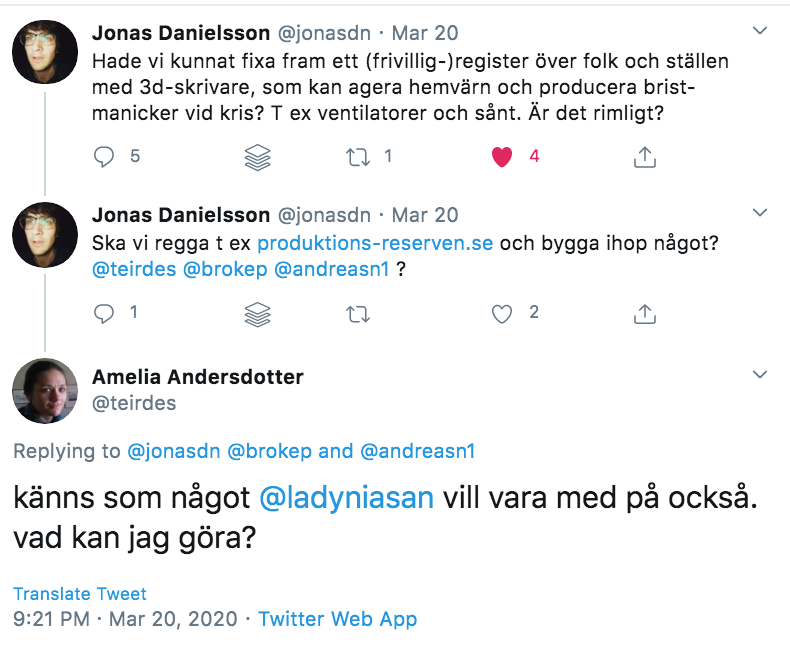A couple of days ago @teirdes pinged me in this exchange:

Jonas is looking for people with whom to build a list of volunteers and hackerspaces/places where people have rapid manufacturing facilities who can produce critical supplies during crises. Such as ventilators.
And today I came across news that a collective with some affiliation with the media lab is trying to move an open source emergency ventilator past the prototype stage and is now being evaluated for mass adoption.
It rushed me back to where we were in 2011. Reeling from the effects of the financial crash, many of us went down the rabbithole of resilience. Some, like @matthias had been living there for ages (ask him to tell you about EarthOs).
At the moment, the focus is missing the hidden casualties of the pandemic; People with other conditions that will now not receive the care they need. Many of whom were already struggling before this issue. Access to insulin, technology for community crisis response that doesn’t expose high risk groups to danger from authorities, helping individuals and communities to moderate their dependency on dysfunctional healthcare systems, opening up STEM and so on.
It’s a long list.
Two years worth of hundreds of conversations, @amelia @melanco @alberto schlepping through obscene volumes of data , @costantino @zoescope and @luciascopelliti trying to get stuff to happen in hackerspaces and shops in Milan, @markomanka coaching projects at an incubator at CERN, a festival in Brussels, @lakomaa and @tino_sanandaji looking at how this stuff meshes with how insitutions work.
More than ever we need to learn from @anthony_di_franco @ramykim @thomasmboa @woodbinehealth and many others have been doing. With a view to improving the resilience of our health and social care systems before the next shockwave hits us.
Edgeryders has grown, as has the network of people, organisations and institutions around it.
So I wanted to look into what, if anything, has changed around how people are using, building or driving adoption of Open Source and DIY care solutions. Then figure how we can use the sudden awareness of how broken things are to mobilise support around them right here, right now.